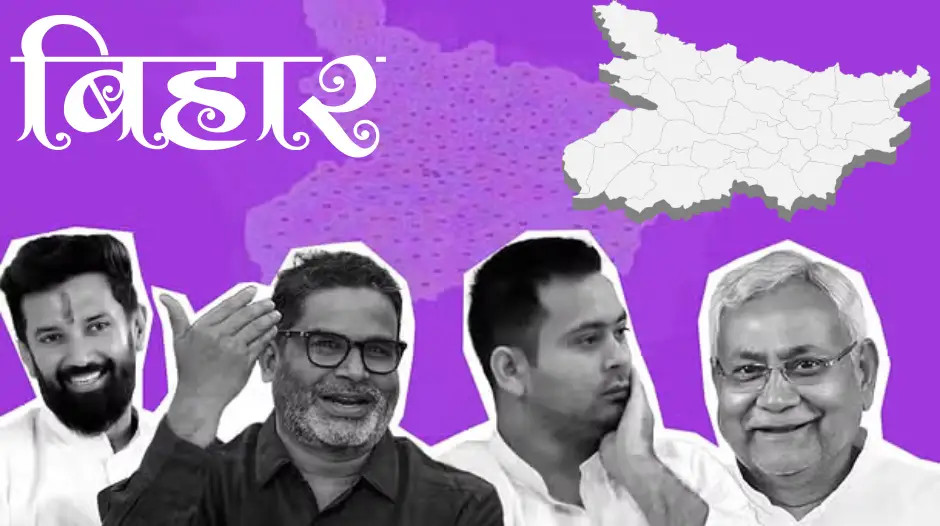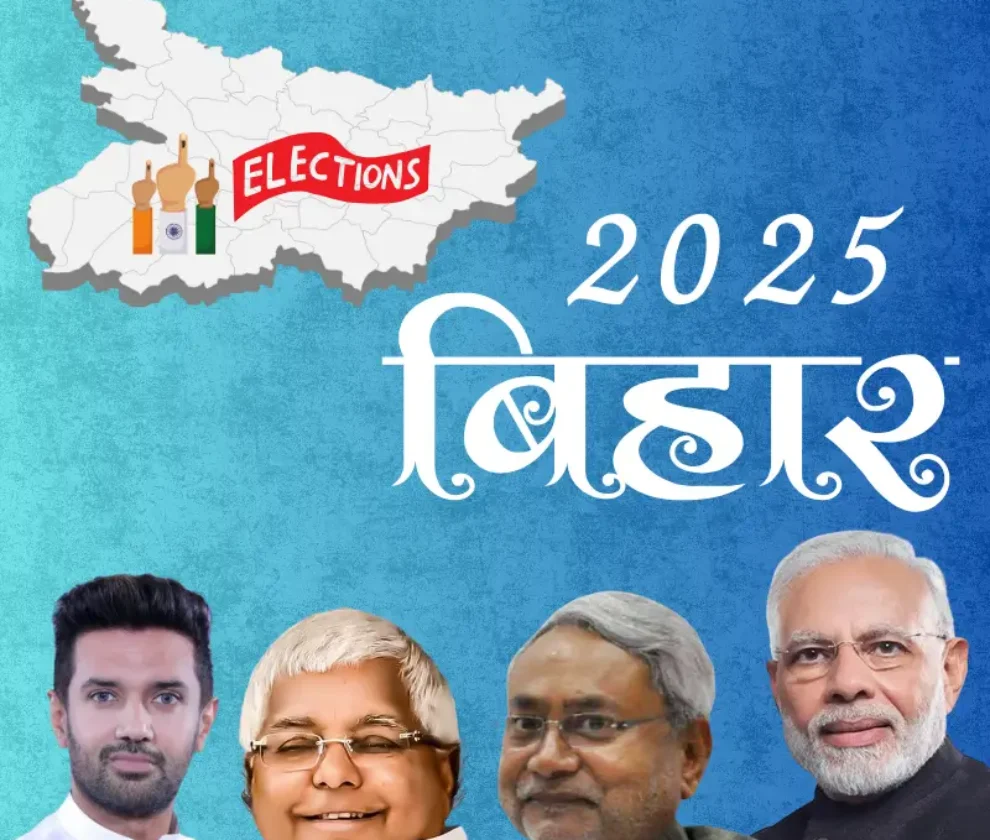Bihar Elections 2025
Can Digital Marketing Be the Kingmaker?
The air in Bihar is already thick with anticipation, even though the 2025 elections are still some distance away. The state, perpetually at the crossroads of political churn, is bracing itself for another significant chapter. The current political landscape, a complex tapestry woven with shifting alliances and deeply entrenched social dynamics, demands innovative approaches from aspiring leaders. Enter digital marketing – a potentially game-changing tool capable of breaking through traditional barriers and connecting directly with the electorate.
A Look at the Current Political Climate:
Bihar’s political arena remains a fascinating, albeit often unpredictable, space. Decades of coalition governments, a strong caste-based voting system, and ingrained regional loyalties shape the outcomes. While the current ruling alliance, a somewhat fragile coalition, holds sway, the opposition actively seeks to capitalize on discontent and perceived shortcomings.
Several factors will likely dominate the narrative leading up to 2025. Economic development (or the lack thereof), employment opportunities for the youth, law and order, and agricultural issues will remain key talking points. The performance of the current government in addressing these concerns will be scrutinized, and the opposition will undoubtedly seize any opportunity to highlight failures. The rise of identity politics and the ongoing debate around social justice will also play a significant role in shaping voter sentiments.
Historically, traditional campaign methods – rallies, door-to-door canvassing, and print media – have been the backbone of political outreach in Bihar. However, the growing penetration of mobile phones and internet access, even in rural areas, presents a compelling argument for embracing digital strategies.

Digital Marketing: A New Frontier for Bihar Elections
While Bihar may still lag behind other states in terms of digital literacy, the increasing smartphone penetration, coupled with affordable data plans, is creating a fertile ground for digital marketing. Candidates who strategically leverage this medium can gain a significant advantage in reaching and influencing voters.
1. Hyper-Targeted Messaging: Speaking Directly to the Electorate
- A key advantage of digital marketing lies in its capacity to segment audiences and deliver personalized messaging. Unlike traditional methods that rely on a blanket approach, digital platforms allow candidates to target voters based on age, gender, location, caste, interest and even past voting behavior.
- Practical Application: A candidate could create separate campaigns for youth, focusing on employment opportunities and skill development, and another campaign geared towards farmers, addressing issues related to irrigation, crop pricing, and loan waivers.
- Bihar Specific Benefit: By segmenting the audience based on caste and regional loyalties, candidates can craft specific messages that resonate with these groups, addressing their unique concerns and aspirations.
- Overcoming Challenges: Although data availability can be an issue in Bihar, candidates can use readily available demographic information and surveys to build targeted audience profiles. Focus groups and on-the-ground research can further refine these profiles.
2. Cost-Effective Outreach: Reaching More Voters with Less
- Compared to traditional methods like rallies and print advertising, digital marketing offers a significantly more cost-effective way to reach a large audience.
- Practical Application: Running targeted Facebook or YouTube ad campaigns can be far more economical than organizing large-scale rallies, especially in remote areas. Furthermore, digital campaigns can be tracked and optimized in real-time, ensuring that resources are used effectively.
- Bihar Specific Benefit: This is particularly important in a state like Bihar, where campaign funds are often limited. Digital marketing allows candidates with smaller budgets to compete effectively with those who have deeper pockets.
- Overcoming Challenges: In areas with limited internet access, candidates can use SMS marketing to reach voters with basic information, such as rally schedules and candidate profiles. Partnering with local community centers and providing internet access points can also help bridge the digital divide and promote online engagement.
3. Enhanced Engagement & Two-Way Communication: Building a Personal Connection
- Digital platforms facilitate two-way communication between candidates and voters, fostering a sense of engagement and building trust.
- Practical Application: Candidates can use social media platforms like Twitter and Facebook to answer questions, address concerns, and participate in online debates. Live Q&A sessions using Facebook Live or YouTube Live can provide a platform for direct interaction with the electorate.
- Bihar Specific Benefit: This can be particularly effective in addressing the concerns of marginalized communities and creating a sense of inclusivity. Candidates can use digital platforms to amplify the voices of these communities and demonstrate their commitment to addressing their needs.
- Overcoming Challenges: To ensure effective interaction, it’s essential to prioritize communication that is both genuine and adaptable.. Candidates need to dedicate resources to monitoring social media channels and responding to queries in a timely and courteous manner. Training campaign staff to handle online interactions effectively is essential.
4. Data-Driven Insights & Real-Time Optimization: Refining Campaign Strategies
- Digital marketing provides access to a wealth of data that can be used to track campaign performance, understand voter sentiments, and refine strategies in real-time.
- Practical Application: By analyzing website traffic, social media engagement, and ad campaign performance, candidates can identify what messages are resonating with voters and what areas need improvement. This allows them to optimize their campaigns for maximum impact.
- Bihar Specific Benefit: This data-driven approach can help candidates overcome the traditional reliance on anecdotal evidence and gut feelings. By understanding what issues are top-of-mind for voters in different regions, candidates can tailor their messaging to address these concerns.
- Overcoming Challenges: Interpreting data and drawing meaningful insights requires expertise. Candidates need to invest in analytics tools and train their staff to understand and utilize the data effectively. Protecting voter privacy and complying with data protection regulations is also crucial.
5. Sentiment Analysis and Reputation Management: A Proactive Approach
- Digital media allows for constant real-time monitoring of what’s being said about a candidate and their party. This allows for quick response of misinformation or rumours.
Practical Application: Using monitoring tools can allow campaigns to identify spikes in discussion or negative comments. These can then be addressed immediately rather than being allowed to fester.
- Bihar Specific Benefit: In a state rife with misinformation and where rumours can spread quickly, reputation management is critical. Addressing rumours before they take hold can be key to campaign success.
- Overcoming Challenges: Campaign teams need to be prepared to respond quickly and appropriately to negative comments or misinformation. A good response is honest, addresses the underlying issue, and is shared widely with voters.
Conclusion:
The 2025 Bihar elections present a unique opportunity for candidates willing to embrace digital marketing. By leveraging the power of targeted messaging, cost-effective outreach, enhanced engagement, data-driven insights, and online reputation management, candidates can connect with voters in a way that was previously impossible. While challenges remain in terms of digital literacy and internet access, the potential rewards are significant.
Those who strategically integrate digital marketing into their overall campaign strategy will be best positioned to shape the narrative, influence voters, and ultimately, emerge victorious in the upcoming elections. The question is not if digital marketing will play a role, but how effectively it will be used to sway the hearts and minds of the Bihari electorate. In 2025, digital savvy just might be the new kingmaker.
